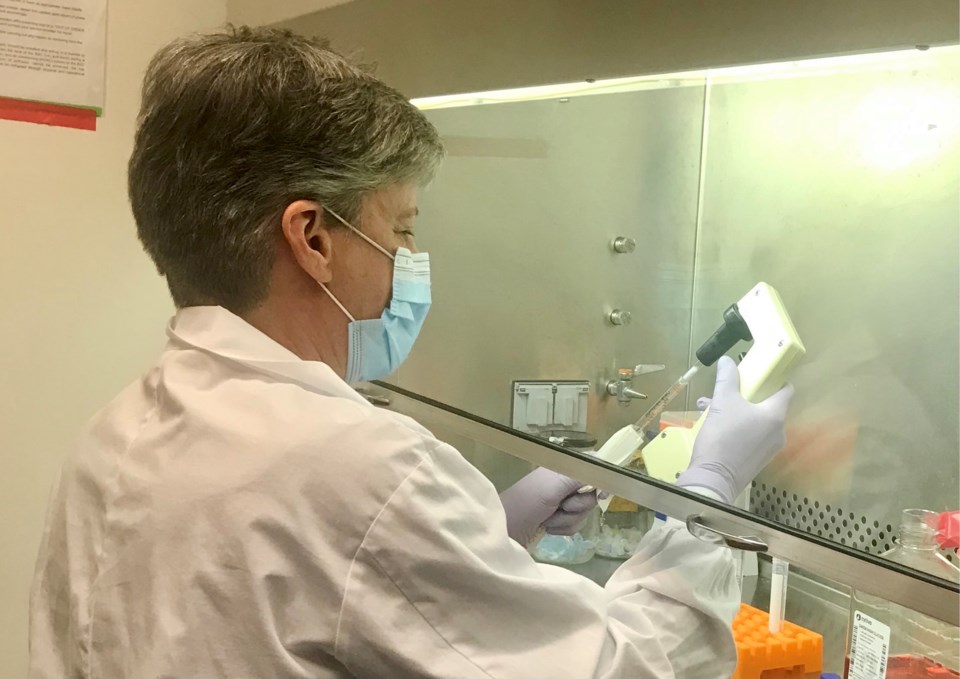Early in the pandemic, public health organizations across the world, the World Health Organization (WHO) as well as the Center for Disease Control and Prevention (CDC) believed that COVID is a human disease and the risk to animals is low.
A recent University of Guelph study says otherwise.
According to a study conducted by professors at the Ontario Veterinary College at U of G, not only can animals get COVID, they are at high risk of contracting the disease from humans. The study suggests people with COVID often pass the illness to their pets, and cats that sleep on their owners’ beds are at particular risk.
“First of all, the infection comes from animals, it's zoonotic and it was transmitted to people. And second of all, most infections have multiple hosts and are not specific to only one species,” said Bienzle.
Last year, Dr. Dorothee Bienzle, a professor of veterinary pathology at the OVC and Dr. Scott Weese, infectious disease specialist began to study how susceptible pets were to becoming infected with the coronavirus that caused COVID-19 In humans. For the purpose of their study, they focused particularly on dogs and cats.
They adapted a PCR test for pets and later built antibody tests for pets to determine whether an animal had been infected with COVID. Throughout 12 months, the pair collected blood samples from 48 cats and 54 dogs from 77 households.
“We identified 67 per cent of cats that have antibodies to SARS-CoV-2 if the cat came from a household of a person with COVID-19 and we identified 43 per cent of dogs that had antibodies as well,” said Bienzle.
Owners of the pets were asked to share information on the lifestyle of the pets such as how often they go out, how often the owners kiss their pets and share a bed with them, and how many hours a day they spend time with their pets.
“The length of time that an owner spent with a cat when the owner was sick, had a positive predictor for when the cat was likely to be testing positive for antibodies,” said Bienzle.
“So what it means is that people, especially if they slept with a cat, or if their cat spent between 19 and 24 hours per day with the owner, then the chances were significantly higher that the cat would also get infected.”
Bienzle said infection looks different in cats than it does in dogs. She said while dogs seemed less likely to get sick from infection and showed mild symptoms like lack of appetite, cats developed severe symptoms such as cough, difficulty breathing, lethargy and a runny nose in addition to a lack of appetite.
She believes the Delta variant will behave similar to variants before and that if people are prone to the virus, the pets are too.
She also highlights that outbreaks among animals in zoos have been taking place around the world such as the San Diego outbreak among amur leopards.“These are very endangered animals and if you follow what happened in San Diego those big cats can get quite sick,” said Bienzle.
“The bottom line is that if a person has COVID Then they should consider their animal to be at high risk of also getting COVID. So, if they live with an animal, they should stay away from other people obviously and they should also stay away from their pets while they are sick,” said Bienzle, adding that the pets too need to be quarantined.
Bienzle and Weese study is in its last stages and will soon go for publication. Their findings are set to be presented at the European Congress of Clinical Microbiology & Infectious Diseases conference.
Funding for this research was provided by the U of G COVID-19 Research Development and Catalyst Fund, the OVC, the Department of Pathobiology and the Ontario Animal Health Network.